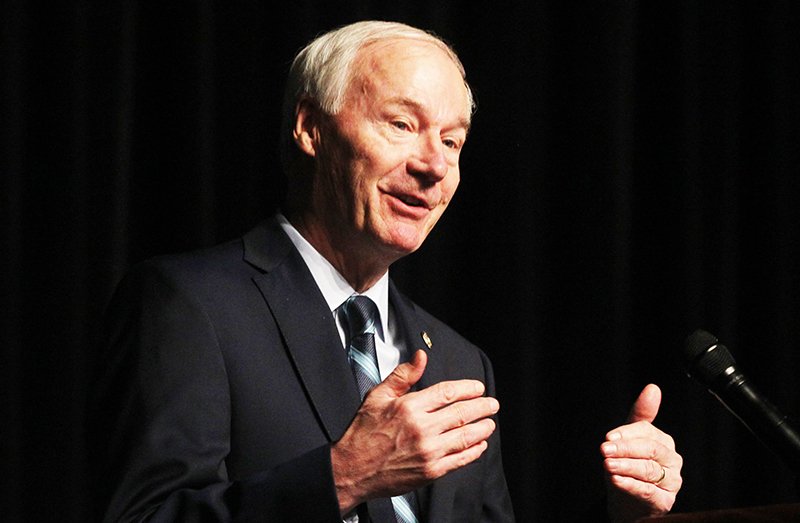Lawmakers on Wednesday declined to take a vote on the latest changes to Gov. Asa Hutchinson's proposal to distribute $25 million in state grants to extend broadband connectivity to underserved areas of Arkansas.
The state Broadband Office tweaked several parts of the Arkansas Rural Connect grant program rules after state lawmakers in November criticized the eligibility requirements for funds. But on Wednesday, policymakers raised additional concerns about the program, saying there were already state and federal funding streams available for rural broadband deployment.
The proposed program rules weren't voted on by the Senate and House Advanced Communication and Information Technology committees after the panel chairman, Rep. Stephen Meeks, R-Greenbrier, failed to get a second on his motion that they be recommended to the Arkansas Legislative Council for final approval.
Sen. Breanne Davis, R-Russellville, told state Broadband Manager Nathan Smith that it was frustrating to see time and effort go into the creation of a new state program when there are already federal grant programs available. Davis sponsored legislation last year that opened the door for the creation of the Arkansas Rural Connect program.
"This doesn't fit the intent of our legislation," she said, adding that effort and resources would be better spent helping rural areas secure federal dollars to help expand access to broadband.
Hutchinson announced the grant program in August, a month after establishing the Broadband Office. The Republican governor's goal is that all Arkansas communities of 500 people or more will have broadband access by 2022, the final year of his second term.
The program allows cities and counties in underserved areas to partner with internet service providers to apply for state funds to construct new broadband infrastructure.
Act 198 of 2019, sponsored by Davis, enabled the program by removing a prohibition on local governments providing broadband services and infrastructure.
Broadband deserts have formed in the state because internet companies are reluctant to invest in extending broadband lines to far-flung areas with low populations. It's expensive to deploy broadband infrastructure to those areas, and it's difficult to turn a profit without a large customer base.
Arkansas ranks 48th in the U.S. in broadband access, according to BroadbandNow.com. While 92% of Americans have access to internet speeds of 25 megabits per second for downloads and 3 mbps for uploads (the federal broadband standard), only about 76% of Arkansans do. Those speeds allow a user to download a typical song in about a second and a two-hour movie in about 10 minutes.
The logic behind the state program is that companies might be more willing to serve those areas with subsidies from the state, and local government officials would provide oversight and assist in selecting the best places to start.
Meeks said he was disappointed that lawmakers didn't approve of the rules on Wednesday. He said the executive branch would have to try to address other lawmakers' concerns.
"We've been talking about this for a year," Meeks said. "Then we get bogged down in politics and do nothing at all."
Lawmakers at Wednesday's meeting thought that the program rules would go before the Arkansas Legislative Council for final approval on Friday if the committees accepted them Wednesday. However, a Hutchinson spokesman said Wednesday afternoon that the rules have always been planned to go before the Legislative Council for final approval next month.
"The ultimate goal of the Arkansas Rural Connect program is statewide connectivity so that both small rural communities and large cities in Arkansas have pathways for more economic development and education," Hutchinson said through a spokesman. "The importance of quality of life and education in Arkansas is something I think we can all agree on. We were aware that once the rules were reviewed by the legislature, the Association of Arkansas Counties, and the public, they might undergo slight changes before they go to full ALC in February. I continue to be confident in the normal rulemaking process and in the passage of the ARC rules next month."
Metro on 01/16/2020
